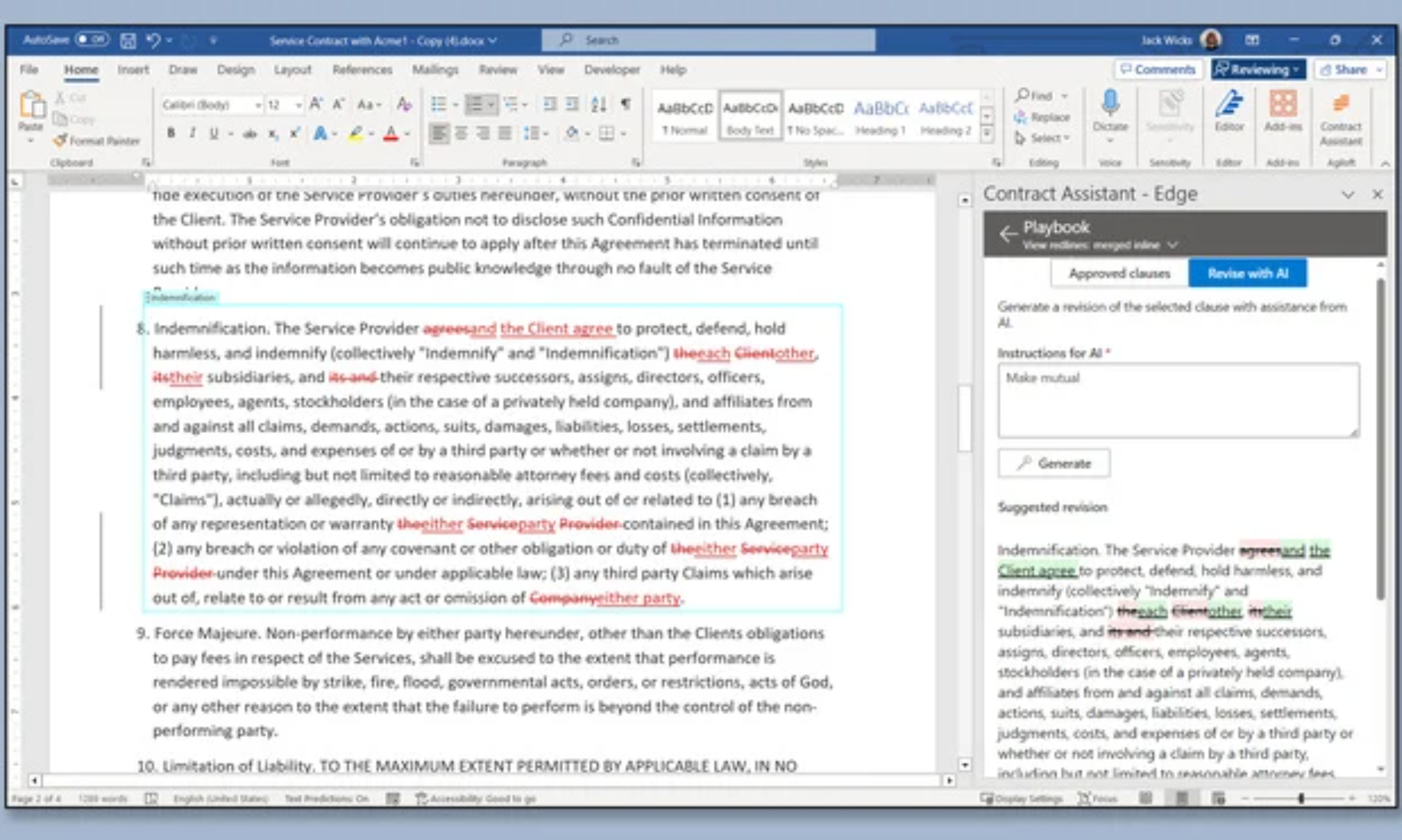
I’ve written previously about conceptual shortcomings in relying on generative artificial intelligence to mark changes in the other side’s draft, commonly known as “redlining” (see this blog post and this blog post). Now, let’s look at a more basic problem: erratic drafting choices. This post is about one example of that.
Recently the contract-lifecycle-management vendor Agiloft released (to quote this LegalTech News article) “a new generative artificial intelligence capability … that aims to streamline contract negotiation, review and redlining.” Another article (here) breathlessly says, “This innovative feature is set to revolutionize the way legal and contract teams negotiate, review, and redline contracts.”
I snagged from the LegalTech News article a screenshot of a markup of an indemnification provision generated by Agiloft’s software. (It’s the screenshot at the top of this post.) Apparently it was created by AI in response to the prompt “Make mutual”. But the changes aren’t optimal.
First, in expressing the indemnification obligation, the redlined version says “The Service Provider and the Client agree to”. That could be understood to express that both parties are committing to acting collectively. (That isn’t fixed by having the indemnification obligation apply to “each other”.) It’s clear from the context what’s intended, but it’s best not to rely on context to salvage clunky drafting.
Second, in the redlined version the Service Provider and the Client are obligated to indemnify “their subsidiaries”. What does “their” mean? Again, the context tells you what it should mean, but you shouldn’t have to rely on that.
Third, the original version says “any breach of any representation or warranty [of] the Service Provider contained in this Agreement”. The “of” in brackets is missing from the original. The redlined version uses “either party” instead of “the Service Provider”, but it doesn’t insert the missing “of”.
And fourth, use of “either party” in the redlined version suggests that one of the parties might be on the hook for breach by, or act or omission of, one party and breach by, or act or omission of, the other party. That doesn’t make sense.
Those glitches probably wouldn’t result in a dispute over meaning, but no drafter should be invited to roll the dice in that manner.
It’s unrealistic to expect that AI, which has likely gorged on dysfunctional contracts, will be equipped to handle such nuances. And you can expect those selling AI redlines to be oblivious to such nuances unless they add expertise to the mix.
Incidentally, I’d be inclined to make more changes to this provision than just asking AI to “Make mutual”.
(This post started life as this LinkedIn post.)

And so the search for intelligent life in the universe goes on.